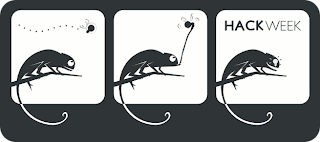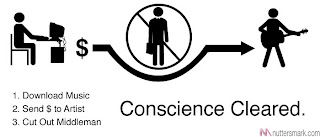Want to have a little bit of fun with your Gnome desktop? here are a few easter eggs for you.
First, hit the Alt-F2 keys together to bring up the Run Applications dialog.
Type “gegls from outer space” (sans quotes) and hit the enter key. You should get the below game, a la space invaders.
Next, try typing “free the fish” (sans quotes) into the Run Applications box. You’ll get Wanda on your desktop.
Tuesday, June 26, 2007
Monday, June 25, 2007
How to restart Gnome without rebooting computer
Ubuntu Linux Tip of the Day - How to restart Gnome without rebooting computer
Posted on 23 May, 2007 by Matt.
Categories: Linux, Ubuntu Linux.
http://blog.clickonline.org.au/category/ubuntu-linux/
Do you need to restart Gnome but dont want to restart your whole Ubuntu machine?
First save and close all opened applications.
Press ‘Ctrl + Alt + Backspace’
or
Start a terminal window and type:
sudo /etc/init.d/gdm restart
Posted on 23 May, 2007 by Matt.
Categories: Linux, Ubuntu Linux.
http://blog.clickonline.org.au/category/ubuntu-linux/
Do you need to restart Gnome but dont want to restart your whole Ubuntu machine?
First save and close all opened applications.
Press ‘Ctrl + Alt + Backspace’
or
Start a terminal window and type:
sudo /etc/init.d/gdm restart
Saturday, June 23, 2007
Global Stats
Operating Systems
1 Windows XP 84.47%
2 Windows 2000 4.28%
3 Mac OS X 3.87%
4 Windows Vista 1.94%
5 Windows 98 1.55%
6 Linux 1.21%
7 Windows 2003 0.67%
8 Windows ME 0.52%
9 Windows NT 0.07%
10 Mac PowerPC 0.07%
http://www.w3counter.com/globalstats.php?date=2007-05-20
1 Windows XP 84.47%
2 Windows 2000 4.28%
3 Mac OS X 3.87%
4 Windows Vista 1.94%
5 Windows 98 1.55%
6 Linux 1.21%
7 Windows 2003 0.67%
8 Windows ME 0.52%
9 Windows NT 0.07%
10 Mac PowerPC 0.07%
http://www.w3counter.com/globalstats.php?date=2007-05-20
Tuesday, June 19, 2007
Ubuntu, Red Hat reject Microsoft patent deal
Ubuntu, Red Hat reject Microsoft patent deal
Martin LaMonica and Richard Thurston, CNET News.com
19 June 2007 09:22 AM
Red Hat, the largest Linux vendor, and Ubuntu-maker Canonical have both rejected calls from Microsoft to forge a deal similar to the one the Redmond giant signed with Linux distributors Novell, Xandros, and Linspire.
Mark Shuttleworth, Canonical's CEO, said in a blog posting on Saturday, that Canonical has declined to talk to Microsoft about any agreement that provides legal protection to Ubuntu users related to "unspecified patents".
"Allegations of 'infringement of unspecified patents' carry no weight whatsoever. We don't think they have any legal merit, and they are no incentive for us to work with Microsoft on any of the wonderful things we could do together," he wrote.
Shuttleworth said these patent agreements create "a false sense of security" and do not effectively protect the user from a patent suit from a big company like Microsoft.
Canonical is a commercial company that sponsors free-software projects and provides services for the Ubuntu Linux distribution.
Following Microsoft's wide-ranging deal with Novell last fall, Microsoft in the past month has announced similar deals with Xandros and Linspire. They cover technical interoperability and offer legal indemnification to some customers who use those Linux distributions.
Microsoft has not yet sued any of those companies but has said it has identified 235 Microsoft patents on which Linux infringes.
Last week, Microsoft's general manager of interoperability and standards, Tom Robertson, said Microsoft is eager to extend these types of arrangements to other Linux and open-source companies, calling it an "issue of coexistence".
No deal between Microsoft and leading commercial Linux distributor Red Hat has happened. After the announcement of Microsoft's Novell contract, Red Hat said it would not pay an "innovation tax" to Microsoft.
Red Hat remains unmoved
Red Hat said there would be no such deal. Referring to previous statements distancing itself from Microsoft, the company insisted: "Red Hat's standpoint has not changed."
The company referenced a statement written when Microsoft revealed it was partnering with Novell, saying that its position remained unaltered. Red Hat director of corporate communications Leigh Day added: "We continue to believe that open source and the innovation it represents should not be subject to an unsubstantiated tax that lacks transparency."
Many open-source followers argue that Red Hat, as the largest Linux vendor, would have a lot to lose from partnering with Microsoft.
Ubuntu cold on Microsoft Open XML
In the same blog post, Canonical's Shuttleworth said pursuing technical interoperability between rival document formats Office Open XML and OpenDocument -- included in the other Linux deals -- was not worth the effort. He did say Ubuntu stands to benefit from investments to improve interoperability between Linux and Windows.
"I have no confidence in Microsoft's Open XML specification to deliver a vibrant, competitive and healthy market of multiple implementations. I don't believe that the specifications are good enough, nor that Microsoft will hold itself to the specification when it does not suit the company to do so," Shuttleworth said.
OpenDocument Format, or ODF, is better, and Microsoft should improve its support for that standard, he said.
Shuttleworth did not rule out working with Microsoft in some capacity but made clear that the makeup of its existing Linux partnerships held little interest for Canonical.
"All the deals announced so far strike me as trinkets in exchange for air kisses," he said.
Linspire and Xandros
Microsoft has already made deals with Novell, Linspire and Xandros, but the latter two are much smaller companies.
Linspire will work closely with Microsoft in a number of areas, including instant messaging and Web search. Although Microsoft has said that open source infringes its patents, the software giant has agreed not to sue users of Linspire.
Microsoft's deal with Xandros, a distributor, is based on both technical and legal considerations. They will work on improving interoperability between their servers to improve systems management.
Microsoft's pact with Novell is rather more complex. The two companies are marketing each other's products and are working on product interoperability. Their pact is subject to a series of sales- and patent-related payments worth hundreds of millions of dollars.
Martin LaMonica and Richard Thurston, CNET News.com
19 June 2007 09:22 AM
Red Hat, the largest Linux vendor, and Ubuntu-maker Canonical have both rejected calls from Microsoft to forge a deal similar to the one the Redmond giant signed with Linux distributors Novell, Xandros, and Linspire.
Mark Shuttleworth, Canonical's CEO, said in a blog posting on Saturday, that Canonical has declined to talk to Microsoft about any agreement that provides legal protection to Ubuntu users related to "unspecified patents".
"Allegations of 'infringement of unspecified patents' carry no weight whatsoever. We don't think they have any legal merit, and they are no incentive for us to work with Microsoft on any of the wonderful things we could do together," he wrote.
Shuttleworth said these patent agreements create "a false sense of security" and do not effectively protect the user from a patent suit from a big company like Microsoft.
Canonical is a commercial company that sponsors free-software projects and provides services for the Ubuntu Linux distribution.
Following Microsoft's wide-ranging deal with Novell last fall, Microsoft in the past month has announced similar deals with Xandros and Linspire. They cover technical interoperability and offer legal indemnification to some customers who use those Linux distributions.
Microsoft has not yet sued any of those companies but has said it has identified 235 Microsoft patents on which Linux infringes.
Last week, Microsoft's general manager of interoperability and standards, Tom Robertson, said Microsoft is eager to extend these types of arrangements to other Linux and open-source companies, calling it an "issue of coexistence".
No deal between Microsoft and leading commercial Linux distributor Red Hat has happened. After the announcement of Microsoft's Novell contract, Red Hat said it would not pay an "innovation tax" to Microsoft.
Red Hat remains unmoved
Red Hat said there would be no such deal. Referring to previous statements distancing itself from Microsoft, the company insisted: "Red Hat's standpoint has not changed."
The company referenced a statement written when Microsoft revealed it was partnering with Novell, saying that its position remained unaltered. Red Hat director of corporate communications Leigh Day added: "We continue to believe that open source and the innovation it represents should not be subject to an unsubstantiated tax that lacks transparency."
Many open-source followers argue that Red Hat, as the largest Linux vendor, would have a lot to lose from partnering with Microsoft.
Ubuntu cold on Microsoft Open XML
In the same blog post, Canonical's Shuttleworth said pursuing technical interoperability between rival document formats Office Open XML and OpenDocument -- included in the other Linux deals -- was not worth the effort. He did say Ubuntu stands to benefit from investments to improve interoperability between Linux and Windows.
"I have no confidence in Microsoft's Open XML specification to deliver a vibrant, competitive and healthy market of multiple implementations. I don't believe that the specifications are good enough, nor that Microsoft will hold itself to the specification when it does not suit the company to do so," Shuttleworth said.
OpenDocument Format, or ODF, is better, and Microsoft should improve its support for that standard, he said.
Shuttleworth did not rule out working with Microsoft in some capacity but made clear that the makeup of its existing Linux partnerships held little interest for Canonical.
"All the deals announced so far strike me as trinkets in exchange for air kisses," he said.
Linspire and Xandros
Microsoft has already made deals with Novell, Linspire and Xandros, but the latter two are much smaller companies.
Linspire will work closely with Microsoft in a number of areas, including instant messaging and Web search. Although Microsoft has said that open source infringes its patents, the software giant has agreed not to sue users of Linspire.
Microsoft's deal with Xandros, a distributor, is based on both technical and legal considerations. They will work on improving interoperability between their servers to improve systems management.
Microsoft's pact with Novell is rather more complex. The two companies are marketing each other's products and are working on product interoperability. Their pact is subject to a series of sales- and patent-related payments worth hundreds of millions of dollars.
Monday, June 18, 2007
Norton AntiVirus is A Virus
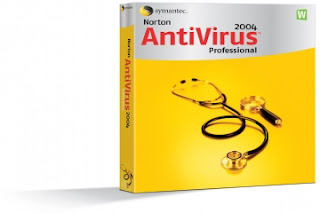
The most precompiled program in all new computers IS a virus to anyone who knows anything about computers.
What Qualifies as A Virus
Uses Up Massive System Resources
DDOS "Zombies" viruses can use up tons of your CPU space while they send looping pings of invalid lengths to their coordinated servers of choice. They're no match to Norton AntiVirus though, which can easily use 40% of your CPU and a gross amount of Memory.
Fake Error Messages & Getting Your Credit Card Number
If you do not choose to activate the trial version of Norton. You still have their disgusting services activited and eating your computer resources. Every startup you will be hassled with "You're NOT PROTECTED AGAINST THE HORRIBLE HORRIBLE PROBLEMS THAT AWAIT YOU!! ACTIVATE THE TRIAL". This mortifies the average computer user that feels no confidence.
Once your trial period is up, you'll be given the same grossly inaccurate message once again that you need Norton AntiVirus or your computer is completely insecure. Either give norton your credit card number or face being scared into giving them it with each subsequent logon. Most computer users are not confident enough to delete their antivirus and don't know how to disable norton from startup.
Is Your Computer Secure Without Norton?
YES. You can use a powerful cocktail of programs that's even more secure and faster than the bloatware that is norton. You should really ask yourself, "Is it worth having my computer go slower to have Norton AntiVirus scan every file I look at and every program I run." Many people confuse hardware problems for their old computers as viruses and anecdotally fear removing the antivirus even if they don't download anything risky.
Security Recommendations
Delete Norton: They have an uninstall utility if normal uninstall fails. It can cause serious issues if improperty uninstalled or installed due to its need to have rabid control over EVERYTHING.
Disable Windows FireWall And Defender: Sygate as a firewall and adaware+syboy do the same thing, only better.
Install ClamWin and FreeAV: Two Free AntiViruses that are very ligh tweight
For those who just worry about certain files from p2p networks Jotti and Virus Total provide the ability to scan with several different virus scanners with one upload.
Install Sygate Personal Firewall: Very small firewall that does the job, it's completely free.
Install Adaware and Spybot: Free anti spyware programs with a great reputation.
Install SiteAdvison: Extension for firefox. It alerts you of the good sites and the bad sites. Don't ever click on google sponsored ads when looking to download software.
Scan with Windows OneCare: Good spyware / vulnerabilty scan by microsoft.
Checkout this list of online free virus scanners.
I just bought Windows Vista. Not by choice. My laptop came with it. As far as security it had the following enabled: Windows Firewall, Windows Defender, Windows User Account Protection which gives an annoying alert every single time a program is opening and Windows Parental Controls. Windows firewall and Defender are downloadable free for XP too.
If You Value Computer Performance and You're Over 10
DELETE NORTON
Sunday, June 17, 2007
Hackers look to crack Mac
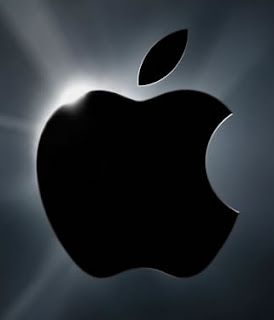
POSTED: 4:57 p.m. EDT, October 24, 2006
By Steve Hargreaves
Special to CNN
NEW YORK (CNN) -- Apple computers have long been prized for being virus-free. But as more people use Apple products, experts say the company is increasingly becoming a target for cyber pranksters and criminals writing viruses and other forms of malware.
The threat was highlighted earlier this week after a handful of the company's iPods were shipped with the RavMonE.exe virus, which targeted iPods used with Microsoft Windows-based computers. The virus does not affect Mac's operating system.
According to Apple, the virus affected less than 1 percent of the video iPods available for purchase after September 12, 2006.
The problem is thought to have originated in the manufacturing process by another company that builds iPods for Apple and isn't believed to be a direct attack on the widely popular iPod itself.
Moreover, experts say the iPod isn't likely to become a Petri dish for cyber germs, as it's not directly connected to the Internet and is easily wiped clean and reloaded. But they do believe viruses targeting Apple's Macintosh personal computers will increase.
"As they increase their market share, there will be more of a concentrated effort to write malicious code for the platform," said Jonathan Hoopes, an analyst who covers Apple for ThinkEquity Partners.
Oliver Friedrichs, director of security response at Symantec, a leading anti-virus software vendor, said 72 vulnerabilities were discovered in the Mac's OS X operating system in 2006, up from 19 in 2004.
And Symantec identified six threats of malicious code written for the Mac OS X operating system in the first half of 2006, versus zero in the second half of 2005 and two the year before that.
"It doesn't mean more bugs are being introduced," Friedrichs said. "But it means attackers are increasingly looking at it."
Those numbers are still puny compared to the amount of viruses out there.
Friedrichs said of the 13,000 virus alerts Symantec sends out a month, maybe a dozen are related to the Mac, with the majority intended for Microsoft's Windows platform.
One reason Apple has so far been shielded from nasty code is because its market share is relatively small.
Apple accounted for 3.3 percent of total U.S. computer sales in 2004, and for 4.3 percent in 2005, according to technology research firm International Data Corporation.
Experts say these low numbers, and the unlikelihood that Apple's share will ever account for much higher than the low double digits, is one reason why the Mac will remain relatively safe. These days, they say, viruses are written more for money than fame.
Taking over a Windows-based computer and using it to send millions of pieces of spam, often with advertising or scams attached, to other Windows machines can generate big money . Writing a Mac-based virus, which could only target other Macs, isn't nearly as profitable.
But perhaps a bigger reason for Apple's seemingly safe position is the stability of Mac OS X.
Hoopes said Mac OS X is based on the UNIX operating system, which was developed by Bell Labs in the 1960's and at the University of California, Berkeley, through the 1970s. Variants of Unix power most of the servers on the Internet and the system has a reputation for security.
Although experts give Microsoft credit for greatly improving the security of its Windows operating system over the last few years, most still say Apple has the Seattle software giant beat.
"The Mac OS X has a higher security profile," said Ray Wagner, a vice president at Gartner, a technology research firm. "It's not generating anywhere near the same rate of problems, even on a per capita basis."
Microsoft says virus-creators are starting to train their sights on other platforms.
"As we've made improvements to the security of Microsoft software and services, we've seen cyber criminals shift their focus to other platforms and applications," said Stephen Toulouse, Microsoft's security program manager.
Apple did not comment on this story.
Friday, June 15, 2007
Chapter Three / Exercises 8

I thought Least Frequently Used (LFU) was Least Recently Used (LRU), in any case, instead of using an individual epoch as in the case of LRU, LFU defines a rate of use connected to each page. I guess this will give a more accurate state of the actual rate of use. I recognize that the “LFU algorithm” would need to track the each pages which means the table will be a “Bigger Table.” As for the software modification needed, I do not know. My software (And Math) skills are bantam... (Yes, I am a telephony guy & that was a very small telephony joke – bantam jack use in T1 cross-connects)
Wednesday, June 13, 2007
The differences in Window/Unix
http://www.linuxinsider.com/story/33089.html
By Paul Murphy
LinuxInsider
That difference in design philosophy shows up everywhere. In memory management, for example, Windows NT 5.0 and its successors use clustered paging, a working set memory analogue and a free memory manager that fires up exactly once per second, while Unix uses an adaptive page specific algorithm -- often least-recently used -- to control paging. In Unix, there is no working set equivalent, and the free memory manager runs when needed.
Tuesday, June 12, 2007
MRAM

-- Magnetoresistive RAM (MRAM): MRAM is a non-volatile memory (NVM) that holds data magnetically and therefore no power is required to sustain the data. Unlike other memory technologies, data is not stored as electric charge of current flows. The data in MRAM is stored by means of change in resistance of MRAM cells when their magnetic orientation is switched. Therefore the state of the bit in MRAM is detected as a change in resistance.
http://www.tmcnet.com/usubmit/2007/05/29/2669299.htm
This would be great for a for Laptops and "Green" PC; Sometimes you cannot find a place to plug in (AC) when you are flying or someone else is using the AC outlet; having devices that use little power is sought-after by sharp PC shopper and supplier.
Saturday, June 9, 2007
“Trifling of Manny”

Late in life, my great grandfather “John Larson” came to the United States on a White Star Line. John Larson did not stay up north with the other Larsons. He moved south to Kansas and married an Indian woman. John would later be transferred to Las Vegas, New Mexico where he worked on the Santa Fe railroad. The Indian woman left my great grandfather, and soon after that John would pass away. My great grandfather was 87 years old when he died. My grandfather and his brother and sister had no one. My grandfather was only seven at the time. A very young Mexican family shows compassion to my grandfather and his brother and sister by giving them a home and raising them as their own children.
As for my mother,a Gonzalez, comes from a very old ranchero Spanish family from Spain. They raised sheep. Their land is 30 miles west from Las Vegas, New Mexico and is on top of a mesa that is called “Trujillo.” The land was given to them by the King of Spain, and they were there 300 years before the first white men would come. (Spanish people are European, and white too) They brought the cattle and sheep to the land which would later killed the Native Americans in great numbers. The Spaniards were notorious record keepers, and not once, can you find anything in their records about the great herds of buffalo. We believe the herds of buffalo grew out of control with the great passing of the Native Americans.
As for me, I do not see myself as a ranchero nor can I ride a horse. My father was in Air Force, and I got to see the world. I lived in Mississippi for three years. (Yes, we got out before Camille hit Biloxi) My father's next duty station was Alaska, and it is a one of the most wonderful places in the world. Even at that young age, I haven't forgotten its beauty. After that, we moved to New Jersey. Next, my father had orders for Korea. I was able to go home to Las Vegas, New Mexico for one year. I found out then I was very different from the people of Las Vegas and my cousins. I did not speak Spanish anymore, and I have a very different view of life. We have some things in common like church, however, we were not the same; (By the way, I am Catholic) when my father came back from Korea, we moved to Minnesota for four years and then the Panama Canal Zone for four years. I was there when Jimmy Carter gave the Panama Canal away. I graduated from Balboa high school in 1979.
In 1981, I enlisted in the U.S. Army. The plan was to do three years and get out. Instead, I married a Vietnamese lady, Chi Kim Larson, who has put up with me for 22 years. She is the better part of me, and I still love her so. I left the army in 1997. I had enough… (I only served less than 15 years) As a civilian, I worked in telephony for next five years. In 2002, I got laid off from Alcatel. (It was a very bad year for all in the “Telephony Field”) We over built the networks for all of the “.com companies” business that did not happen... With very few options left, I chose work in Kuwait then later work in Iraq. I came back to the states in November 2006.
Friday, June 8, 2007
My Chapter one Research Topic

FOMA™ SH904i launched today is based on Symbian OS
(http://www.symbian.com/news/pr/2007/pr20079078.html)
I have selected the “Symbian OS” for my review because it is unique, almost-open, and currently being used by six of the major manufacturers of cell phones. One day in the future, the cell phone will become the most important device you will own, and the “Symbian OS” will continue to adapt (new versions) to make this “Vision” happen.
In the early 90s, we saw PDA devices like the Sharp Zaurus and Psion's EPOC develop into our current Smartphone. The “Symbian OS” is the offspring of Psion's EPOC which operates exclusively on the ARM processors and is designed for mobile devices. The Symbian OS is a proprietary operating system, fashioned by the Symbian Ltd and controlled by the Symbian Supervisory Board... Symbian is currently owned by Nokia (47.9%), Ericsson (15.6%), Sony Ericsson (13.1%), Panasonic (10.5%), Siemens AG (8.4%) and Samsung (4.5%) and is in completion with other mobile operating systems. (Windows Mobile, Palm OS, and Linux)
In this article we see “Do Co Mo,” a Japan’s premier mobile communications company, entering the arena to compete with their new Cell phone FOMA SH904i. (In 2001, “Do Co Mo” came out with FOMA the world's first 3G mobile service based on W-CDMA) “Do Co Mo” will have to contend with the likes of Fujitsu, Mitsubishi Electric, Motorola, Sony Ericsson, Nokia, and Sharp. In addition, it is going to have to ascertain to the Japanese that they need a “Do Co Mo FOMA” Cell phone. Presently, Japan have 56 cell phones based on Symbian OS.
The capital spent into the new “Do Co Mo” cell phone hardware and software technology just might become a sunk cost, however, they cannot afford to let this new venture pass by because the communications links that they own, will be used to meet this up coming “Vision.” Yes, this is an important prospect for “Do Co Mo” and cannot be overlooked.
To be a dominate participant in the forthcoming Vision, “Do Co Mo” introduce the FOMA SH904i which is based on Symbian OS™. It has the Symbian OS, however, I believe “Do Co Mo” is setting up an “exclusive rights” that will require other manufacturers of cell phones to adopt a “licensed agreement” with “Do Co Mo.” The article does not tell much, but sometimes you need to read between the lines… I am sure we are going to see some kind of “Do Co Mo” MOJO here in the States.
Subscribe to:
Posts (Atom)
No Java Stuff from owl...
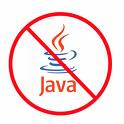
It is here: http://myjavaspring.blogspot.com/
